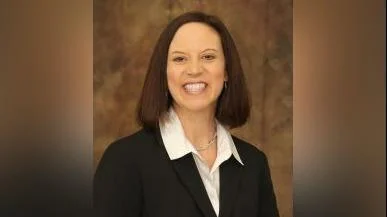Old McHenry County Courthouse
Old McHenry County Courthouse
The Illinois House of Representatives has passed a bill that paves the way for a pilot program in Lake and McHenry counties to eliminate townships and consolidate local governments.
House Bill 4637 amends a township code to allow for just 5 percent of voters in the previous election to petition for a referendum on the next ballot, which brings a vote to consolidate or dissolve their townships. Currently, the ruling pertains only to Lake and McHenry Counties and is considered a pilot program.
Reps. David McSweeney (R-Cary), Sam Yingling (D-Round Lake Beach), Allen Skillicorn (R-Crystal Lake), Jonathan Carroll (D-Buffalo Grove), Cynthia Soto (D-Chicago), Carol Sente (D-Buffalo Grove), Grant Wehrli (R-Naperville), John Connor (D-Romeoville) and Mark Batinick (R-Plainfield) sponsored the bill. It passed with 78 votes in favor.
Currently, if a township wants to dissolve its government, 10 percent of the township -- as well as 75 percent of the counties that include at least 50 percent of the population of that township -- must petition for the dissolution of the township's government to be on the ballot, according to McSweeney.
Several representatives did not agree with the bill, saying that because there were already ways for townships to dissolve their governments, they did not need another bill that focused only on two counties in Illinois.
Rep. Steven Reick (R-Woodstock) used Algonquin Township in McHenry County as an example of why the bill's 5 percent requirement could prove problematic.
"In the case of Algonquin Township, which I believe is probably the most contentious issue in my county, that number of [required] signatures is 268, which is 5 percent of the people who voted in the previous election in 2016, instead of over 2,000 signatures under current law," Reick said.
The township has 88,389 citizens, according to the 2010 U.S. Census data, making it one of the largest townships by population in McHenry County.
The bill requires that the dissolving of government take place 90 days after the referendum passes. Reick objects to that point, as well.
"The county chairman of McHenry County sat in this chair two weeks ago, and I asked him specifically what was going to happen if after 90 days McHenry County could not take over the functions of a dissolved township," Reick said. "He said they would do inter-governmental agreements until they were able to work it out. This has not been thought through, people."
He explained how the bill did not address what would happen if the township being dissolved was in debt, and that there had been no discussion regarding who would take over that debt.
"This bill is not well thought out," Reick said. "If this bill is so good, why was it not made statewide? This bill is like throwing sand in a gearbox and asking the insurance company to buy you a new car. That's basically what this bill is."
Yingling disagreed and said the bill was very pro-taxpayer.
"The number-one concern we hear is people being forced out of their homes because of property taxes -- because of the excess levels of government that we have," Yingling said. "This bill is pro-taxpayer and will help taxpayers."
Halpin did not see a need for the bill, since provisions already exist for townships that want to dissolve their government.
"We already have provisions to consolidate government and eliminate government if the taxpayers and citizens want," Halpin said.
Batinick said he was tired of hearing that consolidation and elimination were needed when no one would back up those complaints.
"We have been talking about consolidating units of government forever, and we won't know if we have the perfect bill until we start taking some action," Batinick said. "This bill is targeted and this is piloted. I think the biggest concern of some of its opponents is that it is actually going to run effectively."
The bill provides for the transfer of rights, powers, duties, assets, property, liabilities, obligations and responsibilities of the road district to the township. It also permits the township board of trustees to enter into a contract with a county, municipality or private contractor to administer the roads added to its jurisdiction.
.jpeg)




 Alerts Sign-up
Alerts Sign-up